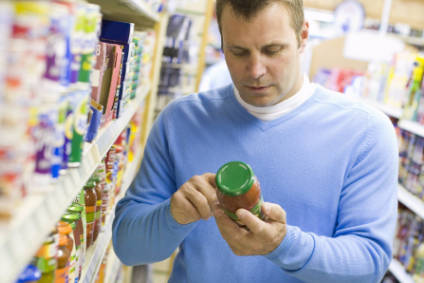
The European Commission has revealed it will start talks on front-of-pack (FOP) nutrition labelling on Monday (23 April).
Its agenda, which has been sent to interested parties, includes looking at FOP solutions from member states – including the UK and France – and private operators and outlining next steps.

Discover B2B Marketing That Performs
Combine business intelligence and editorial excellence to reach engaged professionals across 36 leading media platforms.
The talks bring together the EU’s Working Group of the Standing Committee on Plants, Animals, Food and Feed and the Advisory Group on the Food chain, Animal and Plant Health.
Industry lobby group FoodDrinkEurope has welcomed the launch of EU discussions on the subject but said one meeting is unlikely to be enough and has called for a more structured dialogue.
It said: “The European food and drink industry has since long been calling for a co-ordinated approach to FOP nutrition labelling at European level in the wake of a number of national initiatives – notably in the UK and France – which fragment the EU Single Market and are prone to create confusion for European consumers.
“FoodDrinkEurope is hopeful that the meeting on 23 April will be the start of a fair and transparent process that will allow for a thorough assessment and exchange of different approaches to FOP, based on objective and agreed criteria. This would allow for a better common understanding of the different nutrition labels – both interpretative as well as non-interpretative – that exist on the European market.

US Tariffs are shifting - will you react or anticipate?
Don’t let policy changes catch you off guard. Stay proactive with real-time data and expert analysis.
By GlobalData“Given the scattered knowledge and evidence on this issue, we are of the opinion that one single meeting and a Commission report by the end of the year is unlikely to suffice and therefore would welcome a more structured dialogue.”
Pan-European trade body FoodDrinkEurope has called for harmonisation, arguing the introduction of national schemes – France is another of the countries to have launched its own system – undermines the EU single market.
In the absence of an EU-wide scheme, a number of major food sector players have gone it alone with the Evolved Nutrition Labelling (ENL) initiative.
But last month confectionery giant Mars pulled out of ENL and called for an EU-wide solution to food labelling linked to nutrition and public health.
Mars had signed up to the scheme alongside Mondelez International, Nestle, PepsiCo, Coca-Cola and Unilever but said on quitting the initiative that it “lacks credibility and consensus”.
The other five signatories said at the time of Mars’ departure that they remained committed to ENL.
The ENL scheme is similar to the ‘traffic light’ labels used in the UK. It is a colour-coding system based on individual ingredients such as sugar, salt and fat in food and drink items.
FoodDrinkEurope, however, is also opposed to any colour-coding on labels, including that proposed by the ENL group of companies.
A statement sent to just-food by the ENL group of companies said: “The ENL companies, like FoodDrinkEurope, welcome the fact that the European Commission will facilitate EU meetings on front-of-pack nutrition labelling with member states and stakeholders, including industry.
“We firmly believe that such meetings will allow dialogue around all proposed nutrition labelling schemes in Europe and ultimately provide the basis for a EU-wide approach on this matter.”





